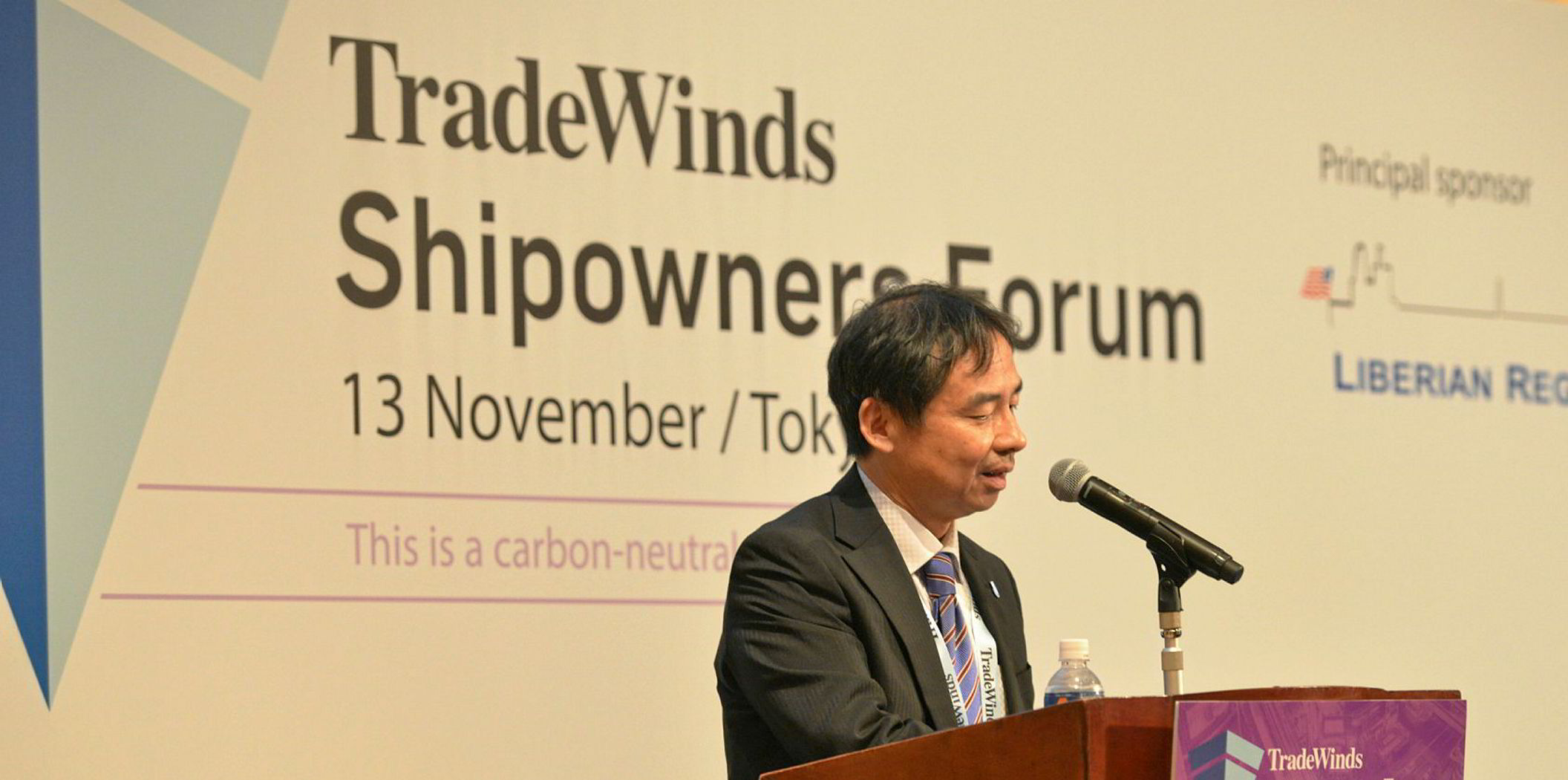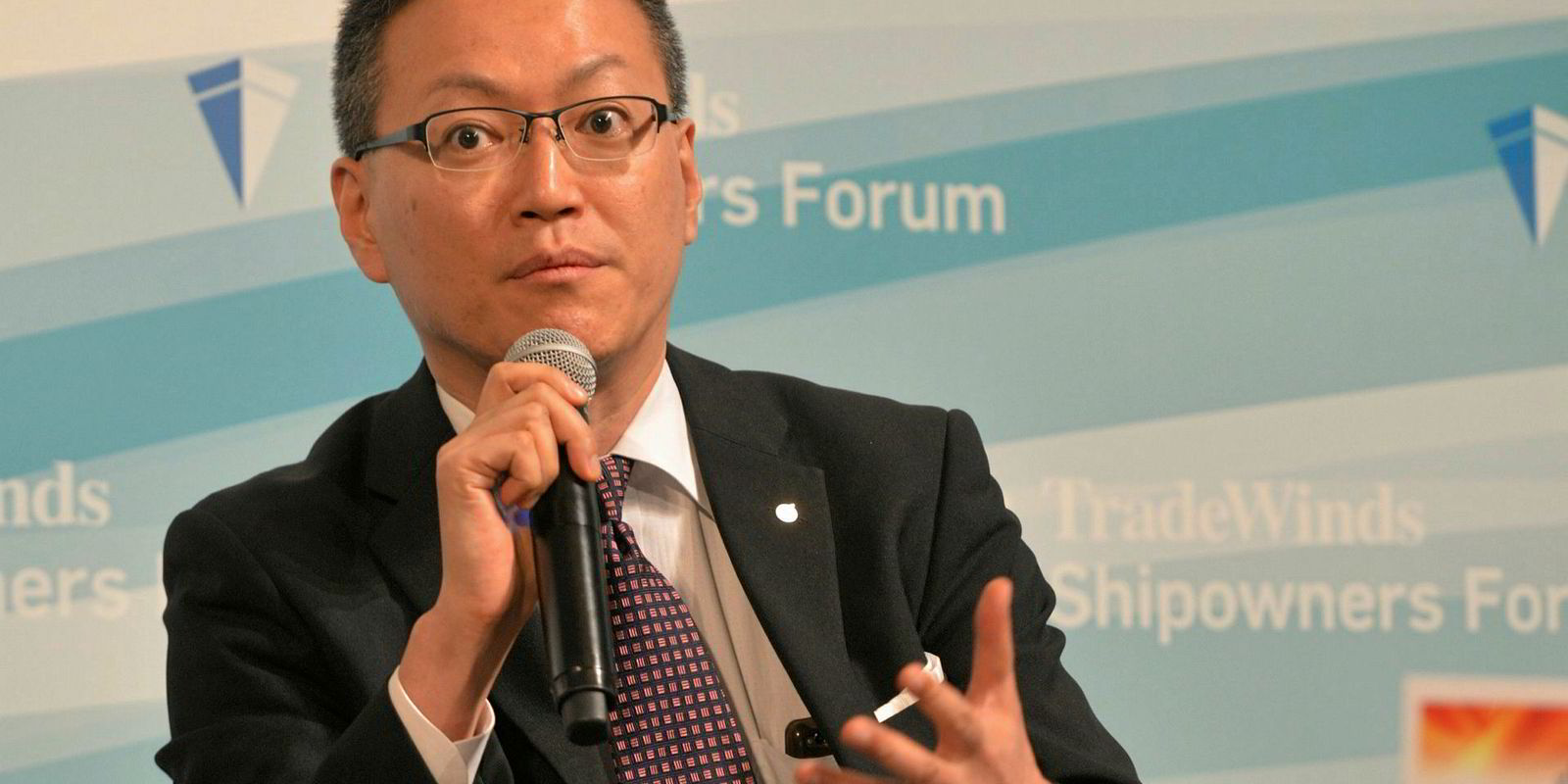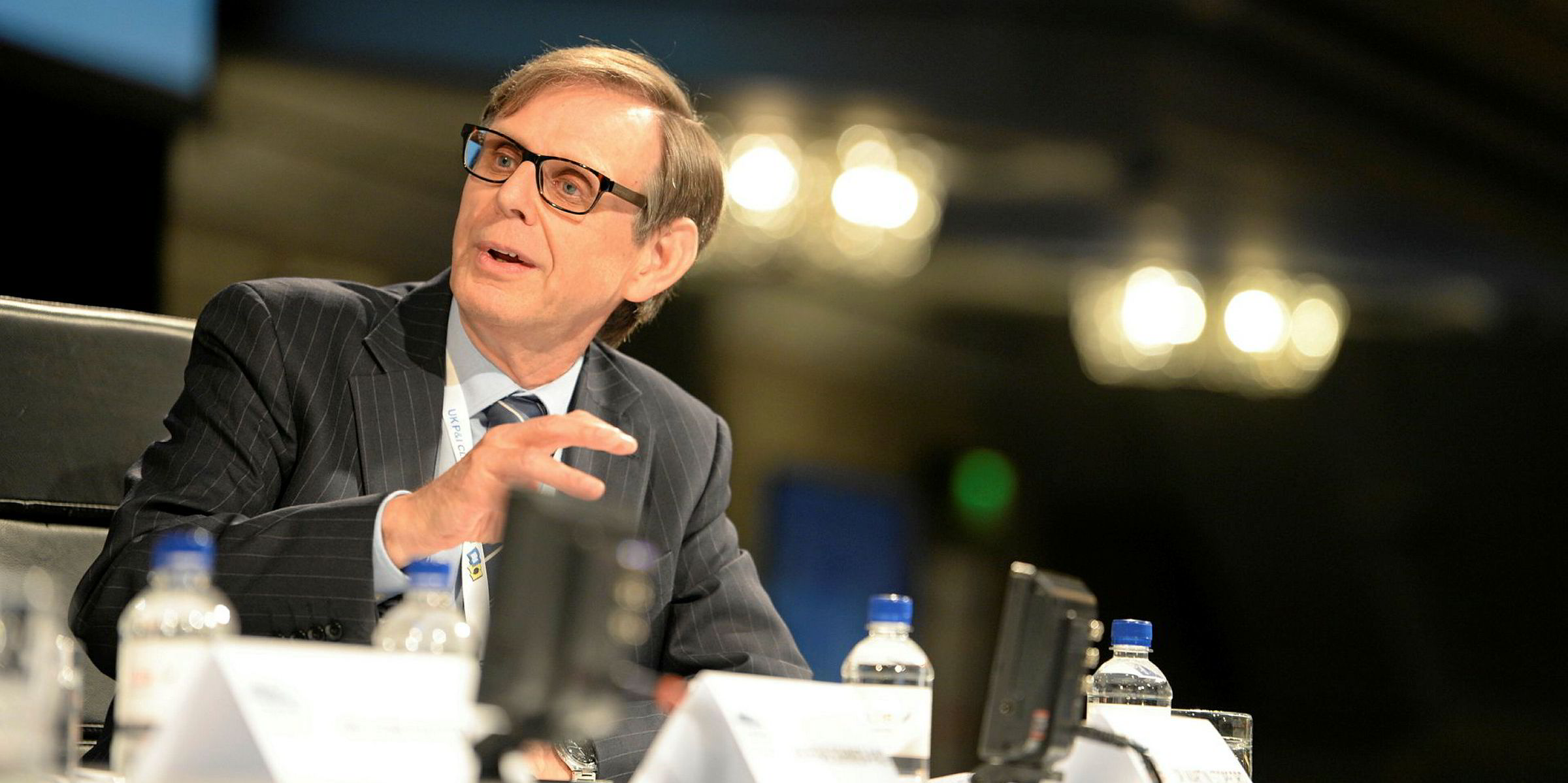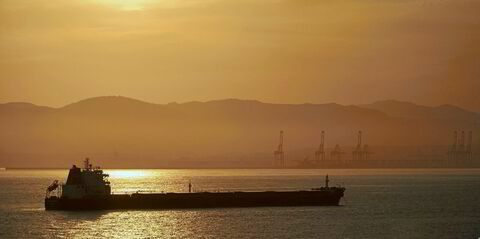Japan is considering making a proposal for the introduction of controls on ship speed as a short-term measure to reduce shipping’s greenhouse gas emissions.
The move was revealed by Japanese Ministry of Land Infrastructure Tourism and Transport (MLIT) senior deputy director Shinichiro Otsubo today at the TradeWinds Shipowners Forum held for the first time in Tokyo.
It comes as pressure mounts on the IMO to come up with something that will substantially reduce greenhouse gas emissions in the short term to meet its target of a 40% improvement in ship efficiency by 2030.
The speed proposal has been long mooted by environmentalists like Seas at Risk as the quickest way to cut emissions but so far no concrete proposal has been tabled by an IMO member state.
Questioned on whether he believed shipping could achieve its greenhouse gas emissions target Ostubo answered: “Yes speed limitation could help bring it down.”
Worst performers first
Ostubo explained that Japan’s initial idea is to apply the strictest limits to the most inefficient ships.
Ships built before the Energy Efficiency Design Index (EEDI), which provides efficiency targets for newbuildings, was introduced would have to sail slower than those built after.
It is understood that Japan is developing its thoughts on the matter and is preparing to make a proposal for the Marine Environment Protection Committee (MEPC) meeting at the IMO in May next year.
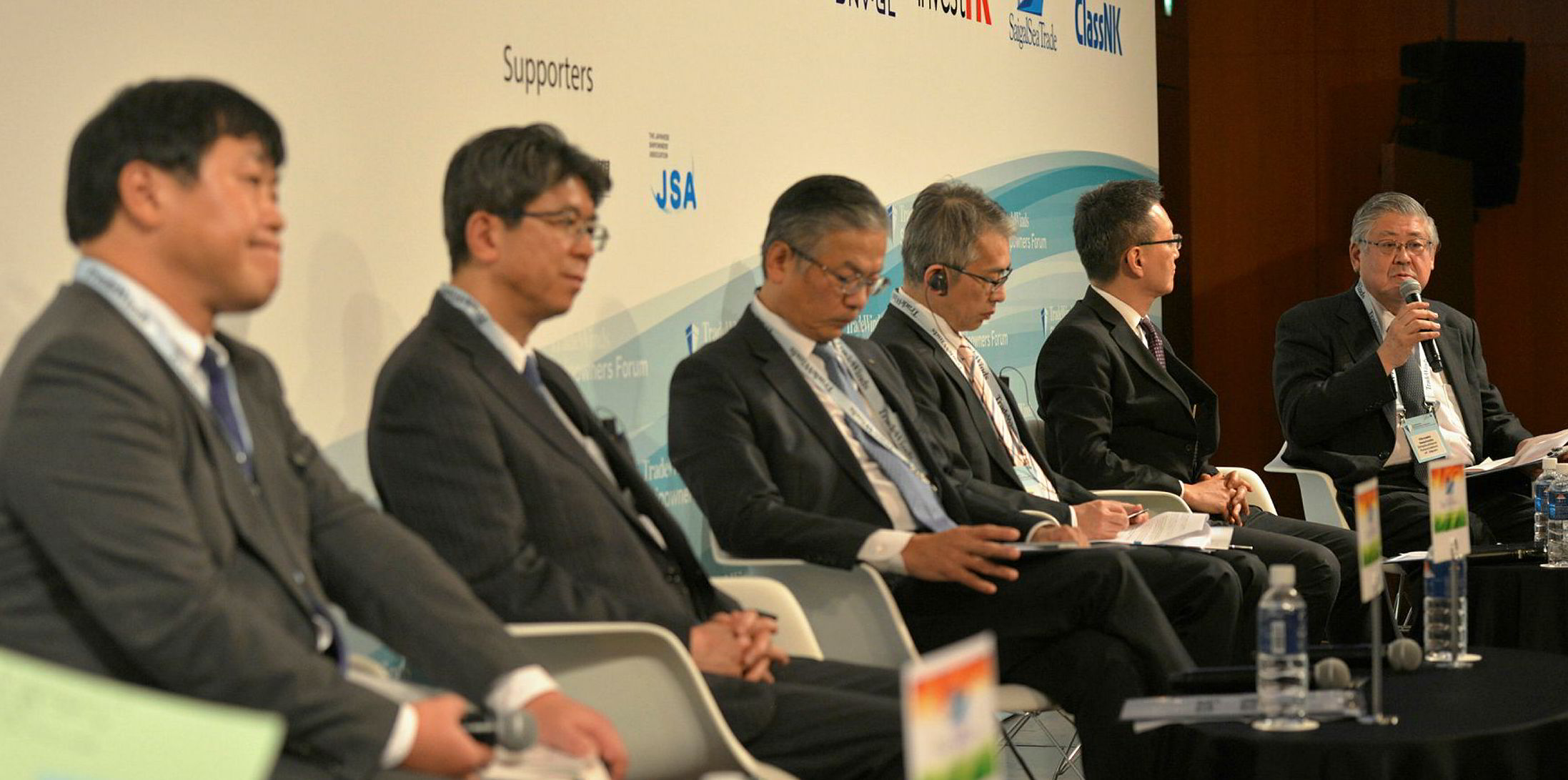
Thanks, but no thanks
However the idea is unlikely to go down well with International Chamber of Shipping (ICS) chairman Esben Poulsson, who was also speaking at the TradeWinds Tokyo forum.
Poulsson said the ICS, which represents shipowners from around the world, fully supported the reduction of IMO’s programme to reduce green house gasses but said that he did not want to see speed limits.
“Mandatory speed restriction could lead to a distortion of the shipping markets and be counterproductive,” he said.
He said that technological development and widespread use of zero emission fuel would be required if the IMO wants to achieve its targets.
